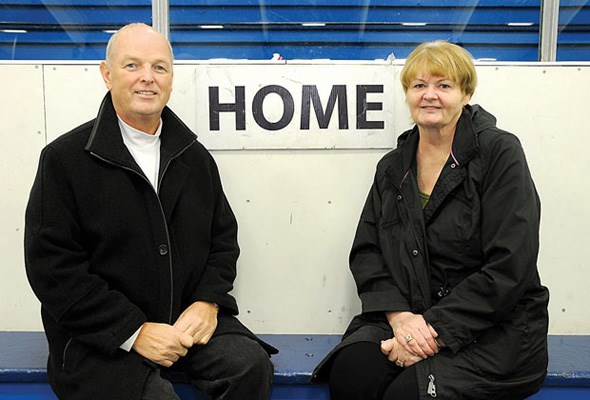By the early 2000s, the Richmond Sockeyes had long since become a household name. Thirty years since the franchise began, the Sockeyes had won several important championships.
In 2002, ownership once again switched hands from Romeo Bon to Ken Kirby.
Its been a solid team for all of the 40 years, so it was easy to sustain the reputation that the previous owners had, said Kirby, who owned the Sockeyes until 2007.
However, Kirby did admit the passionate Bon was apprehensive about letting the team go to a man he didnt know very well.
I assured him I would sustain the quality of the team, said Kirby, light-heartedly. He just wanted to make sure it was passed on to good hands.
Kirby and coach Ron Johnson focused on the development of the younger players. They wanted to foster them from a young age and watch them achieve their potential, not only as athletes but as all-around good characters.
So, in a rather outlandish move for the time (which may not have assuaged Bons worries) Johnson set out to recruit a handful of 15-year-old players younger than the average 16- to 20-year-olds.
The first year, I brought in six 15-year-olds, said Johnson. I had to fight for this decision. Other coaches and managers thought I was crazy to do it.
Though it was physically intimidating for the younger players at first, Johnson said eventually they realized they were as skillfully capable as their 20-year-old opponents.
Recruiting the young players was one of the most exciting parts for me, to see them develop and grow, said Kirby. We always picked players that we knew would be strong, good characters.
Most of these rookies, such as Karl Alzner, Jason Garrison and Kendall McArdell, made it to the NHL, though not all stuck around there. The 2004 team also featured starting goalie Wyatt Russell, son of Kurt Russell and Goldie Hawn, who regularly attended games.
Despite skepticism about rookie recruiting, the team won the provincial title in 2003, particularly due to the skills of goalie Kevin MacKay, and then again in 2004.
We were all gathered around having supper, Johnson recalled, before the 2003 provincial game. And the boys realized that this could be their last time playing together if they didnt win, and I think that saddened them a bit. They did of course win the game and continued to play in the Keystone [national championship], but I really think it was their friendship and the want to continue playing together that made them win.
In his years of coaching, Johnson saw much sacrifice on the part of the players for the team. Not only would they commit to themselves, but theyd commit to each other.
The amount of commitment, it was just a riot to see as a coach, he said. My role was to direct and motivate, but they carried the rest themselves. The most exciting part was seeing the players realize their dreams and follow them to fruition.
Kirby followed Bons stipulations when scouting a new general manager to take over, spending a year searching for the right person. Meanwhile, personal reasons pulled Johnson away from the Sockeyes in 2006 with the death of his father, but he came back to coach with Aldergrove and operates his own hockey school.
It really was a great organization, he said. I still talk about many of those success stories from that time today. Those players are used to help inspire future generations.



